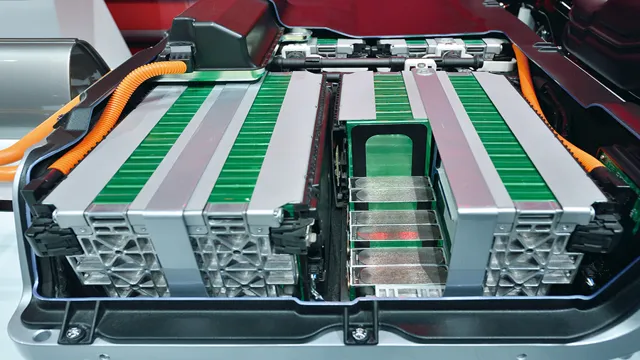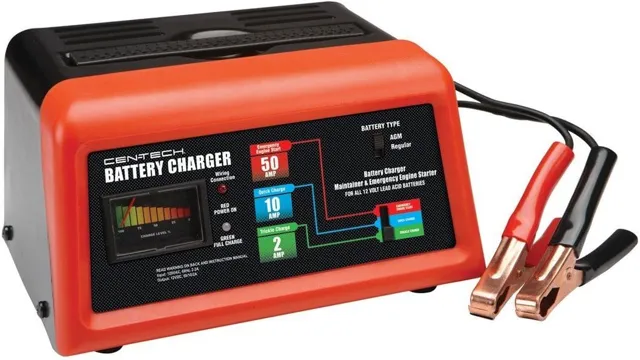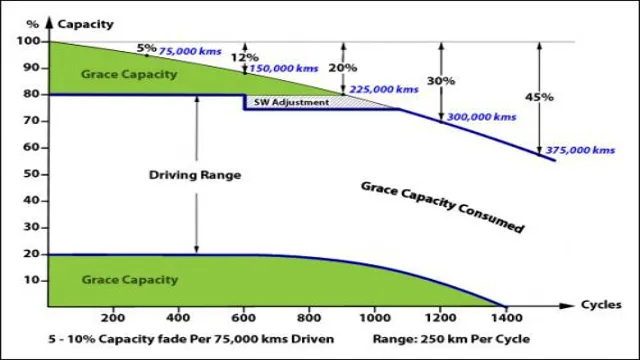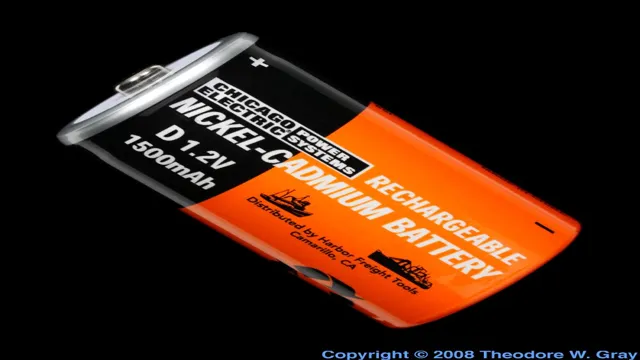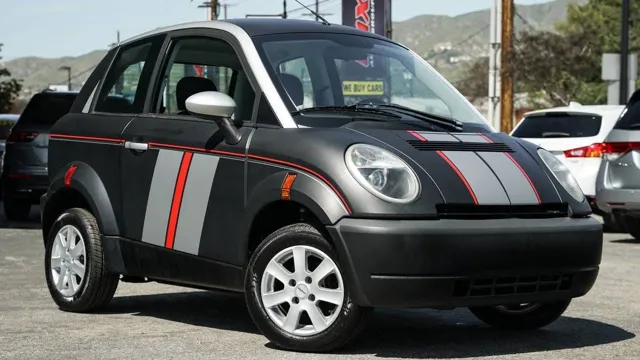Revolutionizing Transportation: Everything You Need to Know About Electric Car Battery in India
Electric cars have been gaining popularity in recent years due to their environmental benefits and cost savings in the long run. One of the most crucial components that determine the performance and endurance of an electric vehicle is its battery. In India, the electric car market is still in its nascent stage, and the availability of electric car batteries remains a significant challenge.
However, with the government’s push towards electric vehicles, several companies are working on developing and manufacturing electric car batteries in India. In this blog post, we will delve into the current state of electric car batteries in India and explore the various options available for Indian consumers looking to make the switch to electric vehicles. So, if you’re considering investing in an electric car, keep reading to learn more about the battery options available in India.
Market Overview
India is witnessing a rapid increase in the demand for electric car batteries. Electric cars have become increasingly popular as they are environmentally friendly and cost-efficient in the long run. The government’s push towards electric vehicle adoption has also contributed to the growth of this industry.
The Indian government’s plan to achieve 30% electric vehicle adoption by 2030 has prompted car manufacturers to offer electric cars at affordable prices. As a result, the electric car battery market has seen significant growth in recent years. However, challenges such as lack of infrastructure for charging stations, higher upfront costs, and limited driving range are still hindering the widespread adoption of electric cars in India.
Despite these challenges, the electric car battery market in India is projected to grow rapidly in the coming years, as the government continues to incentivize electric vehicle adoption and car manufacturers continue to improve battery technology.
Rising demand for electric vehicles in India
It’s no secret that the demand for electric vehicles is skyrocketing in India. With the continuous rise in oil prices and increasing concerns about environmental issues, more and more consumers are opting for cleaner and more energy-efficient options. According to recent reports, the Indian electric vehicle market is expected to grow at a rate of over 50% in the next few years, with the government’s push towards electric mobility being a significant catalyst for this growth.
The market is currently dominated by two-wheelers, with major manufacturers such as Hero Electric, Bajaj Auto, and TVS Motor Company leading the charge. However, the passenger vehicle segment is also seeing significant growth, with companies like Tata Motors and Mahindra & Mahindra leading the way in this category. The surge in demand for electric vehicles in India is a positive sign for the country’s future, as it not only helps reduce greenhouse gas emissions but also contributes towards making India self-sufficient in terms of energy.
With more and more manufacturers jumping on the electric vehicle bandwagon, we can expect to see a significant shift towards clean energy in the years to come.
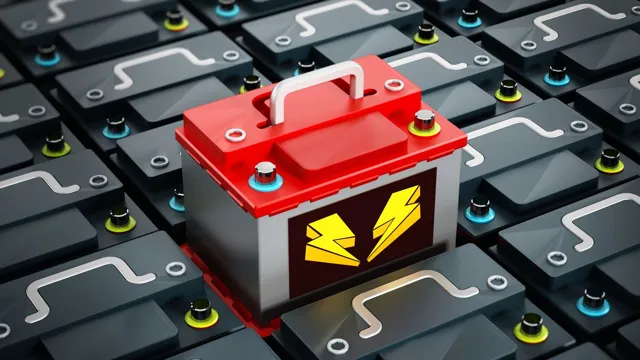
Government incentives and policies to promote electric mobility
As electric mobility gains popularity, governments around the world are introducing policies and incentives to encourage adoption. In the United States, for example, the federal government offers tax credits of up to $7,500 for the purchase of electric vehicles. Additionally, many states offer their own incentives, such as rebates and exemptions from sales tax.
In Europe, several countries have implemented or are planning to implement bans on the sale of new petrol and diesel cars in the coming years. Norway, a country with a high percentage of electric vehicles on the road, offers significant tax breaks and other incentives to electric car owners. These policies are designed to not only encourage consumers to choose electric vehicles, but also to encourage manufacturers to produce more electric models.
With increased government support, electric mobility is likely to become even more accessible and affordable for consumers in the future.
Types of Electric Car Batteries
Electric car batteries have come a long way in recent years. In India, there are primarily two types of batteries used in electric cars – Lithium-ion batteries and Lead-acid batteries. Lithium-ion batteries are commonly used in electric cars because they are lighter and more efficient.
They are also known for their high energy density, which means they can store more energy in a smaller space. This results in longer driving ranges for electric cars. On the other hand, lead-acid batteries are heavier and less efficient than lithium-ion batteries.
They are also less expensive, which makes them a popular choice for low-end electric cars. However, one downside of lead-acid batteries is that they have a shorter lifespan than lithium-ion batteries. Overall, both types of batteries have their own set of pros and cons, and the choice between them depends on the specific needs and requirements of the electric car.
Lithium-Ion Batteries
Lithium-ion batteries are the most popular type of battery used in electric cars. They are known for their high energy density, which allows them to store more energy and provide longer ranges. There are different types of lithium-ion batteries used in electric cars, such as Lithium Iron Phosphate (LFP), Lithium Manganese Oxide (LMO), Lithium Nickel Cobalt Aluminium Oxide (NCA), and Lithium Nickel Manganese Cobalt Oxide (NMC).
Each type has its advantages and disadvantages, and they differ in terms of their energy density, lifespan, and safety. For instance, LFP batteries are known for their durability and safety, making them ideal for electric buses and trucks, while NCA and NMC batteries are commonly used in electric cars due to their high energy density. Despite their popularity, lithium-ion batteries also have some drawbacks, such as their high cost and the potential risk of thermal runaway, which can cause the battery to catch fire or explode.
However, with continuous improvements in battery technology, such as the use of solid-state electrolytes and silicon-anode batteries, electric car batteries are becoming more efficient, safer, and affordable.
Lead-Acid Batteries
One of the oldest types of electric car batteries is the lead-acid battery. These batteries are still widely used today due to their affordability and reliability. Lead-acid batteries are composed of lead plates and an electrolyte solution of sulfuric acid and water.
During charging, the lead plates are converted into lead dioxide and sponge lead, which stores energy. Lead-acid batteries are also rechargeable, which means they can be used again and again. However, they are relatively heavy and have a relatively short lifespan compared to other types of electric car batteries.
Nevertheless, they remain a popular choice for powering smaller electric vehicles as well as auxiliary systems in hybrid cars.
Sodium-Sulfur Batteries
One type of electric car battery is the sodium-sulfur battery. These batteries are made up of liquid electrodes, with a layer of molten sodium on one side and sulfur on the other. The sodium and sulfur react chemically to produce electricity, with the sodium ions moving through a ceramic membrane to the sulfur electrode.
This type of battery has a high energy density and can operate at high temperatures. Sodium-sulfur batteries are commonly used in hybrid and electric buses and have been tested in cars as well. However, they have some drawbacks, such as a short cycle life and a risk of fire or explosion if not properly maintained.
Overall, sodium-sulfur batteries offer a promising option for sustainable transportation but require further development to become a reliable mainstream option.
Top Electric Car Battery Manufacturers in India
India is slowly but surely shifting towards electric cars to reduce pollution and carbon emissions. One of the crucial components of these vehicles is their batteries, which are manufactured by various companies across the nation. Among the top electric car battery manufacturers in India is Exide Industries, a familiar name in the battery world and a prominent player in the automotive segment.
Another key player in this field is Amara Raja Batteries, which has a joint venture with Johnson Controls to manufacture batteries for various applications, including electric vehicles. Additionally, Tata Chemicals is also involved in electric car battery manufacturing, having invested in a joint venture with Tata Motors to create an indigenous solution for the Indian market. Other notable manufacturers include Suzuki Motor Corporation and Hero MotoCorp, both of which have joined forces with foreign battery companies to produce batteries suitable for electric cars.
With these manufacturers leading the charge, India is poised to become a major player in the global electric car market.
Tata Chemicals
Tata Chemicals is one of the top electric car battery manufacturers in India whose primary focus is on the production and distribution of advanced lithium-ion batteries. The company’s tech-driven solutions and extensive research have helped them develop high-performance batteries with excellent energy efficiency and long life. Tata Chemicals’ batteries are known for their low carbon footprint, which aligns with the company’s commitment to sustainable energy solutions.
They cater to both electric two-wheelers and four-wheelers, making them a reliable and versatile supplier in the Indian EV market. Their innovative battery management system ensures optimum performance, and they continue to invest in R&D to improve their products further. Tata Chemicals is also a leading player in the renewable energy sector, which gives them a competitive edge when it comes to developing sustainable EV solutions.
With their commitment to innovation and sustainability, Tata Chemicals is poised to become a significant player in the growing Indian EV market.
Exide Industries
Exide Industries is one of the top electric car battery manufacturers in India, known for its high-quality and high-performance batteries. The company has a wide range of batteries that cater to various types of electric vehicles, including two-wheelers, three-wheelers, and four-wheelers. Exide’s batteries offer excellent power, longer life spans, and fast charging capabilities.
They are also environmentally friendly and comply with international safety and quality standards. With over 60 years of experience in the Indian market, Exide Industries has established itself as a trusted name in the automotive battery industry. Its extensive network of dealers and service centers spread across India ensures that customers always have access to the best in class services.
So, if you’re planning to buy an electric vehicle in India, consider investing in Exide’s reliable and efficient batteries for a smooth and hassle-free driving experience.
Future Outlook for Electric Car Batteries in India
Electric car batteries in India have a promising future, with the country’s government pushing for a cleaner and greener environment. The Indian government wants to have only electric vehicles (EVs) sold in the country by the year 2030, which has led to more investment in research and development of better and more efficient electric car batteries. In addition, automobile manufacturers in India are working towards producing electric vehicles with competitive pricing and longer battery life.
Government subsidies and tax incentives are also available for EV manufacturers, making the transition to electric vehicles in India more cost-effective for consumers. With the growing concerns over air pollution and the rising demand for EVs, there is a significant opportunity for electric car battery manufacturers to establish themselves and grow in the Indian market. In conclusion, the future looks bright for electric car batteries in India, with the country poised to become a key player in the global electric vehicle market.
Conclusion
In conclusion, the electric car battery situation in India is electrifying! With advancements in technology and government initiatives to promote electric vehicles, India is slowly but surely moving towards a sustainable and green transportation future. While challenges and obstacles remain, the potential for a brighter and cleaner tomorrow is within reach. So, hop on the electric bandwagon and be a part of the solution, because let’s face it – petrol-powered cars are so last century!”
FAQs
What is the current status of electric car battery technology in India?
The electric car battery technology in India is rapidly evolving and improving. Several companies, including Mahindra, Tata, and MG Motors, are investing in the development of batteries that can offer longer driving ranges and faster charging times.
How much does it cost to replace an electric car battery in India?
The cost of replacing an electric car battery in India varies greatly depending on the make and model of the car. Generally, it can cost anywhere between Rs. 1 lakh and Rs. 5 lakhs.
Is it possible to drive an electric car from one end of India to the other on a single battery charge?
No, it is currently not possible to drive an electric car from one end of India to the other on a single battery charge. At present, the longest range electric car in India is the MG ZS EV, which has a driving range of around 340 km.
What is the future outlook for electric car battery technology in India?
The future of electric car battery technology in India looks promising. With the government’s push towards electric vehicles and several companies investing in research and development, the cost of batteries is expected to decrease significantly, and the driving range is likely to increase, making electric cars a more viable option for consumers.
